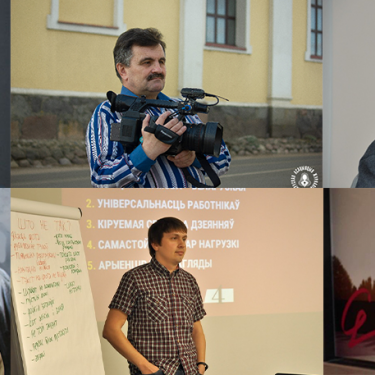RSF denounces coordinated raids on media outlets in Belarus

Reporters Without Borders (RSF) condemns a series of police raids on media outlets and searches and arrests of journalists in a coordinated operation by the Belarusian authorities with the clear aim of silencing the country’s independent press.
The authorities arrested at least 11 journalists, conducted more than 20 searches and blocked three news websites in the course of the crackdown, which began yesterday morning.
The first media outlet to be targeted in the capital, Minsk, was Nasha Niva, one of the country’s oldest and most popular newspapers, which now exists only online. When the police searched its premises yesterday morning, they took a particular interest in its accounting department.
The police also searched the homes of four members of its staff, including editor Yahor Martsinovich, who was detained by masked officers as he was walking his dog, was escorted back to his apartment and was then placed under arrest. The Investigative Committee said he was given “medical treatment” for an injury to his head.
The newspaper’s deputy editor, Andrei Skurko, an accountant, and Andrei Dynko, the editor of Nasha Istoriya, a magazine linked to the newspaper, were meanwhile jailed on charges of causing a serious public order disturbance. Reporter Natallia Lubneuskaya and photographer Shura Pilipovich-Sushchsyts were also detained, questioned and then released.
Local media outlets were also targeted in several regions. Ihar Kazmerchak, the editor of Orsha, an independent news website based in the northeastern city of Orsha, was arrested and charged with causing property damage, while his family and friends were questioned about damage caused to buildings in the city by political graffiti. Dzianis Dubko, a photographer working for the site, was also arrested after a search, but was released a few hours later.
In the western region of Brest, near the Polish border, KGB agents searched the offices of the Intex-press online media outlet and seized all of its editorial equipment. The homes of its editors, Vladimir Yanukevich and Ruslan Revyako, were searched and afterwards the two journalists were told to report for questioning in an investigation into terrorism. Similar grounds were used for a search of the offices of Media-Polesye. Other journalists were placed in pre-trial detention in charges of “insult” or “defamation.”
“The last independent Belarusian journalists are being subjected to a roundup of an exceptional scale one worthy of the darkest hours in the country’s history,” said Jeanne Cavelier, the head of RSF’s Eastern European and Central Asia desk. “The authorities are using trumped-up charges to try to stifle the media outlets that covered the demonstrations after last summer’s controversial presidential election. Following these coordinated raids, at least 22 journalists are now held in Belarusian jails for doing their job. We call for the release of all the detained journalists, and we urge the authorities to cease this unacceptable harassment of independent media.”
The information ministry also blocked the Nasha Niva website and at least two other media sites – Dev.by, a site specialising in new technology, and the mirror site of Euroradio, an exile radio station whose Minsk bureau was closed by the authorities on 5 July.
Belarus has been ruled since 1994 by President Alexander Lukashenko, a press freedom predator who didn’t think twice about hijacking a Ryanair passenger flight on 23 May in order to arrest Raman Pratasevich, the editor of the Telegram news channel NEXTA.
Europe’s most dangerous country for journalists, Belarus is ranked 158th out of 180 countries in RSF's 2021 World Press Freedom Index.



